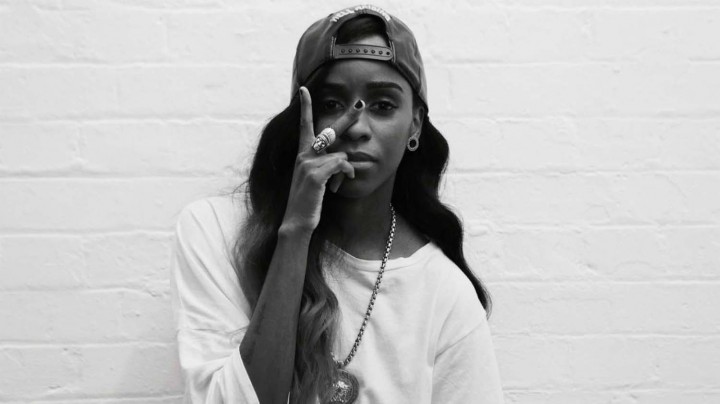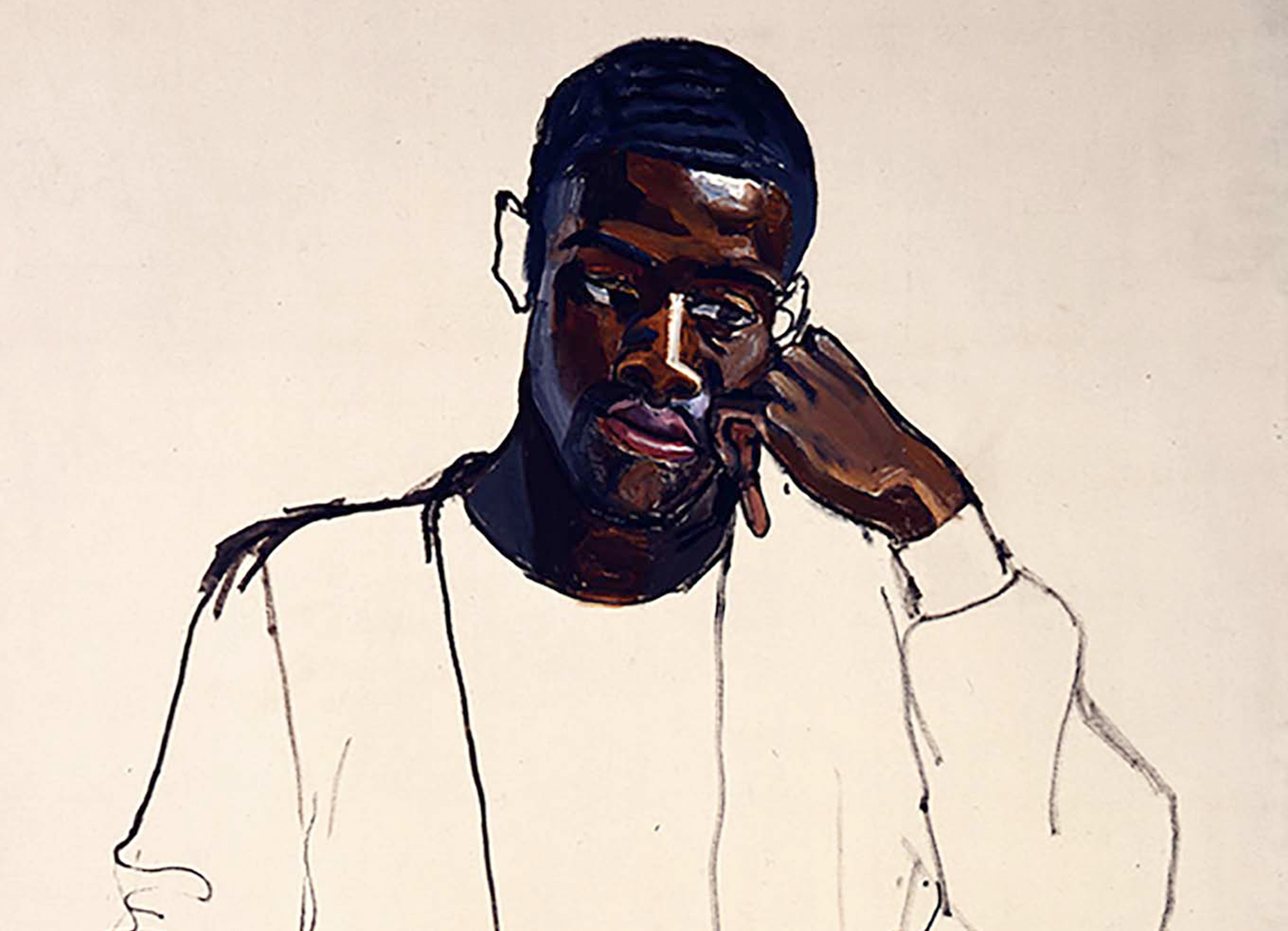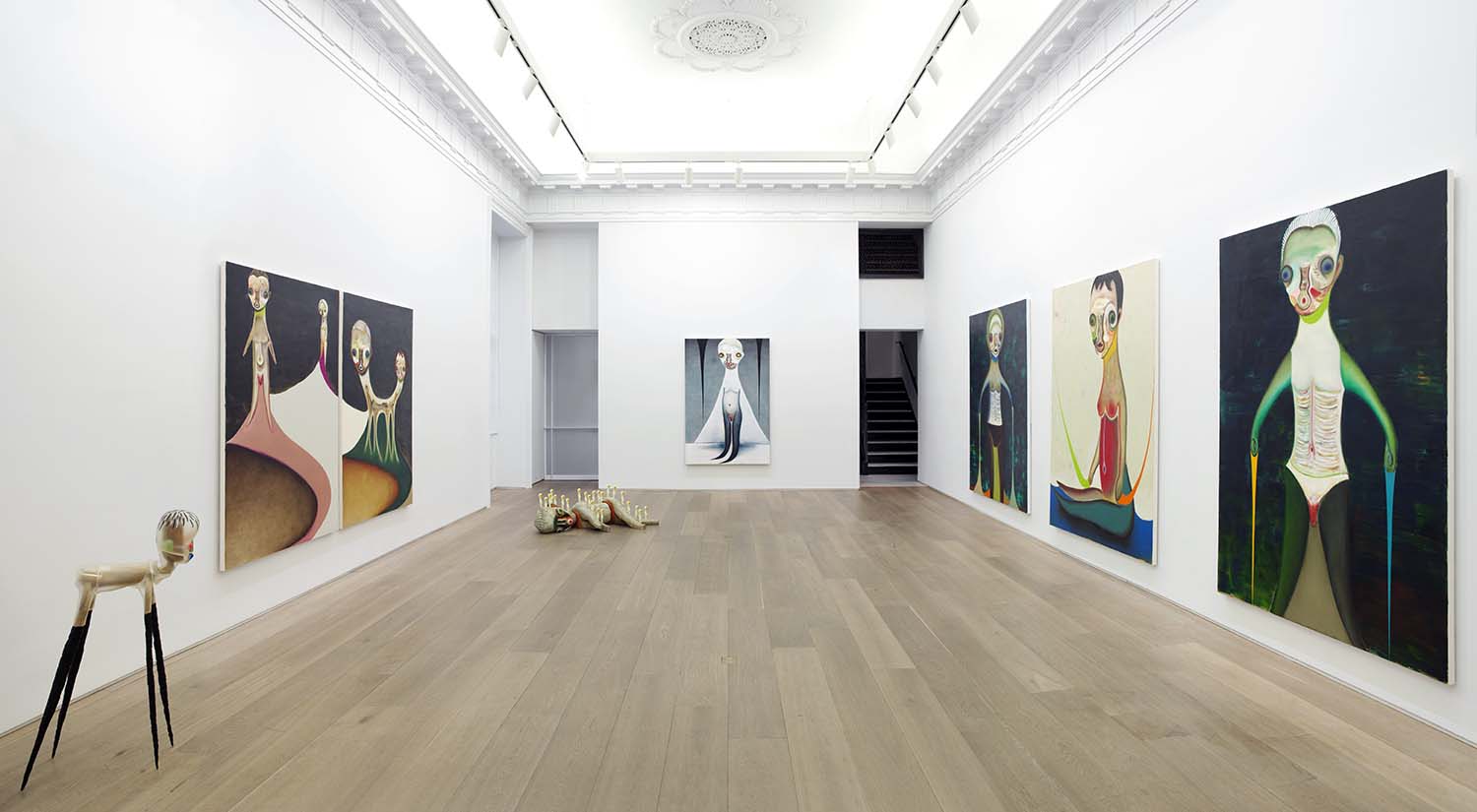For twenty-three-year-old rapper Angel Haze, gender pronouns are more restrictive than descriptive.
Growing up in a strict Pentecostal household, Haze was not exposed to secular music until their teenage years, when they moved to Brooklyn with their mother after leaving a congregation of the controversial Apostolic Faith Church in Detroit. (Haze uses gender-neutral pronouns, including “they,” instead of “he” or “she.”) The pointedness of their message leaves no exit, using accelerating rhythms and earworm hooks to serve up combative piercing accounts of past traumas and immediate threats. Hearing the new track “Impossible,” the next tape, Back To the Woods, suggests a mobilizing haste. Following the independent release of mixtapes New Moon, Altered Ego, King, Voice and Classick, Back to the Woods, was released on Republic Records.
“Impossible” has been pored over lovingly on Genius, a public annotation site where dense rap lyrics land to be deciphered, translated and clarified. The site — originally Rap Genius and created precisely for this kind of critical examination of commonly disseminated texts such as song lyrics, though now Genius Beta supports commentary of any page of any website [read the interview with the site’s founder on the 302 May-June 2015 issue of Flash Art] — is a highly interactive, often incendiary platform. The song’s manic pace keeps Haze sprinting, describing themself as everything from a rabid wild fox to a machine to being made of flowers, all to the same relentless beat. A frenetic pace drives lines such as “I am a sickness, man: I am a cancer / See, I know the devil, man: I am his handler,” delivered at delirious speed, inviting anonymous, enthusiastic sticky notes such as “In other words, She a BAD BITCH!!!”
Born Raee’n Roes Wilson, the rapper now self-identifies as pansexual, agender and androgynous. Their confrontational approach to media frenzy over the highly charged language surrounding gender and sexuality today delivers testimony in the form of lyrics, as we all begin to codify the proliferating classifications of gender and detail the spectrum of sexual identities by stretching it enough to include substantial vagueness. If Genius is to interpreting and extrapolating lyrical references as Wikipedia is to crowd-sourced historicization, this model of self-defined presentation is a preliminary mapping out of a new understanding of gender fluidity — and irrelevance.
Angel Haze’s videos are just as fervent. The smoky cobalt-hued video for “Werkin Girls,” a hypnotic song with dizzying tempo and lightning rhymes, is set in a grim abandoned warehouse; a man, masked in tinfoil topped with a pair of sunglasses, leads a string of people through what appears to be a twisted lineup. A pair of smiling, oblivious young girls jumping rope appear, as if in a nightmare. The scenes are all intercut with close-ups of Angel Haze singing into the camera, their steel claws fluttering and purple eye shadow glittering, a fluffy white dog wearing a pink shirt patiently waiting at their feet. Everyone has a turn at Double Dutch by the end.
Trying on other personas is one way the performer engages their peers, topping other singers to betray more of their vulnerability on their own songs. They released their “30 Gold” — a series of thirty freestyle covers, one released each day for thirty days, in 2013, in a lead-up to the release of their album Dirty Gold. The selection includes painful confessions — a cover of Eminem’s 2002 single “Cleaning Out My Closet” exposed their history of childhood abuse, recounting the experience of being raped at seven years old, while their rendition of hit “Same Love” by Macklemore and Ryan Lewis — a mainstream radio-friendly sentiment supporting marriage equality, with an accompanying storybook-narrative video — is remade as a monologue addressing their deeply religious mother, recalling the experience of coming out to her as a thirteen-year-old. Clearing space for a moving passage from LGBTQ activist Andrea Gibson’s seminal poem “Andrew,” the poet’s other name, Angel’s version incorporates “No, I am not gay/ No, I am not straight/ And I’m sure as hell not bisexual, damn it/ I am whoever I am when I am it/ Loving whoever you are when the stars shine/ And being whoever you be when the sun rises.”
In quick succession after “Impossible,” the second track released, “Babe Ruthless,” is a chant for what the artist has called their “stepping up to bat” — a hyperactive two-minute bomb with a loud ticking, an anthem of self-defense. Without shielding, chameleoning or camouflaging, the artist instead is one figure with kaleidoscopic identities, suppressing any of them just enough to avoid being determining. Platforms such as Genius suit Angel Haze not only because they are of a hyper-connected generation and awareness, but because these delivery methods allow anyone to antagonize language as a living entity. Angel Haze says it best themself: “I am a junkie for fuckin’ semantics.”




